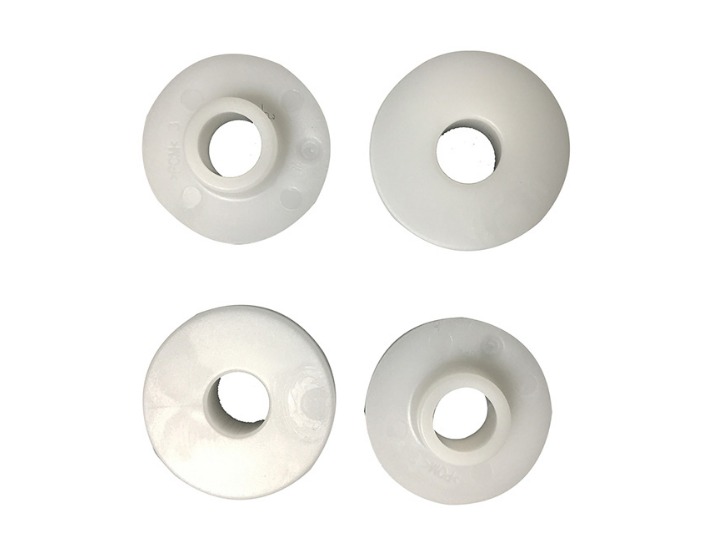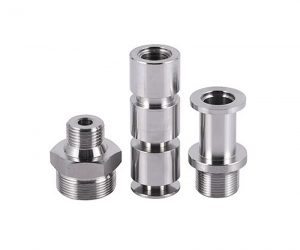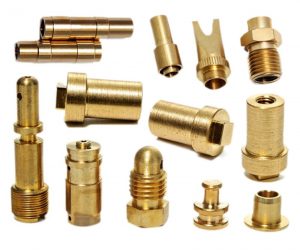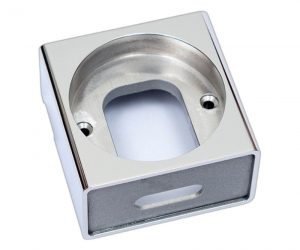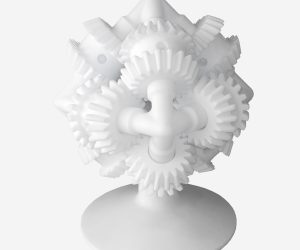China has become a hub for precision machining due to its skilled workforce, advanced technology, and competitive pricing. However, with so many options available, it can be challenging to choose the right supplier for your needs. Here are some tips to help you select the best precision machining company in China:
- Research: Start by researching potential suppliers online, checking their websites, and reading reviews from other customers. Look for companies with a strong reputation for quality and reliability.
- Verify Certifications: Make sure the supplier has the necessary certifications and qualifications to perform precision machining. This includes ISO certifications, quality management system certifications, and certifications from industry associations.
- Check Equipment and Technology: A reliable precision machining company should have state-of-the-art equipment and technology to perform high-quality work efficiently. Ask about their machinery and tools, and check if they use the latest technology in their operations.
- Quality Control: Quality control is critical in precision machining. Make sure the supplier has strict quality control measures in place to ensure that the parts meet your specifications and industry standards. They should also be willing to provide certifications or test reports to verify their quality.
- Customer Service: Good customer service is essential when working with a supplier. Look for a company that offers responsive communication, clear pricing, and prompt delivery. They should also be willing to work with you to resolve any issues that may arise during the production process.
- Cost: Finally, consider the cost of the parts and services offered by the supplier. While price is important, it shouldn't be the only factor you consider. Make sure you're getting value for your money by comparing prices with other suppliers and evaluating the overall quality of the parts and services provided.
How do you get into precision machining?
To get into precision machining, it is essential to acquire the necessary skills and knowledge. Consider enrolling in machining and mechanical engineering courses to gain a solid foundation. Practice hands-on machining techniques and learn how to operate precision machinery, such as lathes, mills, and grinders. Seek apprenticeships or internships with experienced machinists or machining companies to gain practical experience and learn industry best practices.
How do I choose a CNC mill?
When choosing a CNC mill, consider the following factors:
- Quality and Precision: Assess the mill’s build quality, rigidity, and accuracy. Look for mills with robust construction and high-quality components that can consistently deliver precise results.
- Machine Capacity: Consider the size and capacity of the mill in terms of the workpiece dimensions and weight it can accommodate. Ensure the mill can handle your specific project requirements.
- Control System and Software: Evaluate the mill’s control system and software. Look for user-friendly interfaces and advanced features that can enhance productivity and ease of operation.
- Support and Service: Research the manufacturer’s reputation for customer support and after-sales service. Ensure they provide timely technical assistance and have spare parts availability.
How to optimize the manufacturing of precision CNC parts fast?
To optimize the manufacturing of precision CNC parts quickly, consider the following strategies:
- Design Optimization: Collaborate closely with design engineers to optimize part designs for manufacturability. Simplify complex features, reduce tolerances where possible, and utilize standard tooling to streamline the machining process.
- Material Selection: Choose materials that strike a balance between performance and ease of machining. Selecting materials with excellent machinability can improve production speed and reduce tool wear.
- Programming Efficiency: Ensure efficient CNC programming by utilizing CAD/CAM software to generate precise toolpaths and optimize cutting strategies. Utilize high-speed machining techniques and advanced tooling to improve overall productivity.
- Tooling and Fixturing: Invest in high-quality cutting tools and toolholders to ensure optimal cutting performance. Utilize custom fixtures or workholding solutions to improve setup times and part repeatability.
- Continuous Process Improvement: Regularly monitor and analyze machining processes to identify areas for improvement. Implement lean manufacturing principles, such as eliminating waste and reducing non-value-added operations, to optimize production efficiency over time.
By considering these factors and implementing optimization strategies, you can enhance the efficiency and productivity of precision CNC part manufacturing.
Research the Company’s Experience and Reputation
When outsourcing precision machining services to China, one of the most important steps is to thoroughly research potential companies. With a wide range of options available, it’s crucial to ensure that the company you choose meets your specific needs. A key aspect of making this decision is researching the company’s experience and reputation. Here’s why it’s essential and how you can conduct effective research.
Why Researching Experience and Reputation Matters
Before finalizing a deal with a Chinese precision machining company, it’s important to examine their experience and reputation. An experienced company not only understands the unique requirements of different industries but also has a history of working with various materials and challenging designs. Their knowledge of the latest manufacturing techniques and how to handle complex projects gives them an advantage over less experienced competitors.
Moreover, a company’s reputation is a strong indicator of its reliability and quality. Online reviews, testimonials, or references from past clients can offer valuable insights into their reliability, customer service, and consistency in delivering high-quality products. A strong reputation means that the company values its work and is more likely to assist you even after project completion.
Key Factors to Consider When Researching a Precision Machining Company
Here are some important factors to evaluate when looking into a company’s experience and reputation:
1. Years of Experience:
The number of years a company has been in the industry is a good indicator of its expertise. A company with more years of experience is likely to have worked on a wide range of projects and overcome various challenges, making them a safer bet for high-quality, reliable outcomes.
2. Quality Control Systems:
A robust quality control system is essential to ensuring that every product is manufactured to the highest standards. Companies that prioritize quality control are less likely to produce faulty parts, which can save you time and money in the long run.
3. Certifications:
Certifications like ISO 9001 are crucial in demonstrating that the company adheres to international standards for quality management systems. A certified company is more likely to maintain consistent product quality, and it’s a good sign that they invest in their processes.
How to Conduct Effective Research
1. Online Reviews and Testimonials:
Use online resources like Google or industry-specific forums to read reviews from other customers. This can provide insight into the company’s reputation and the satisfaction level of previous clients.
2. Direct Communication:
Reach out to the company and ask questions about their experience, capabilities, and certifications. The company should be transparent about their track record and be able to provide relevant details, such as examples of similar projects they have completed.
3. Trade Shows and Exhibitions:
Attending trade shows in China can provide a unique opportunity to meet manufacturers face-to-face. It’s an excellent chance to ask questions directly and evaluate the company’s capabilities in person. You’ll get a better sense of how they operate and whether they meet your standards.
Evaluate Equipment and Technology Capabilities
When outsourcing precision machining services, the company’s equipment and technology play a huge role in determining the quality, accuracy, and efficiency of the manufacturing process. Here’s how you can assess their capabilities.
Assess the Quality of Their Equipment
1. Age and Maintenance of Equipment:
Old machinery can affect the quality of your parts and lead to longer lead times. It’s important to inquire about the age of the equipment and the company’s maintenance practices. Well-maintained, modern machinery ensures higher precision and fewer delays.
2. Up-to-date Technology:
Cutting-edge technology allows for better accuracy, faster production times, and more complex designs. Companies with advanced machinery are likely to deliver higher-quality products, making them better equipped to handle your needs.
Evaluate Their Technology Capabilities
1. CAD/CAM Software:
CAD (Computer-Aided Design) and CAM (Computer-Aided Manufacturing) software enable companies to design and manufacture complex parts accurately. It’s essential to ensure the company uses modern CAD/CAM systems to streamline production.
2. Quality Control Technology:
Advanced inspection tools like CMM (Coordinate Measuring Machines) ensure that parts meet precise specifications. Quality control systems help reduce defects and ensure that the final product is exactly what you need.
3. Automation Capabilities:
Automation improves production efficiency and reduces human error. A company with automated systems can run operations around the clock, speeding up the process while maintaining consistent quality.
Consider Capacity and Scalability
To ensure that a company can meet both your current and future needs, evaluate its manufacturing capacity and scalability.
1. Lead Times:
Check the company’s lead times for both prototype and production runs. Ensure they can meet your deadlines and adapt to any changes in production volume.
2. Flexibility:
Can the company adjust quickly to changes in orders or production schedules? A flexible workflow is crucial for businesses that need to make last-minute adjustments without compromising quality.
3. Capacity Planning:
Ensure the company has sufficient capacity to handle your orders. Inquire about their contingency plans if there’s a sudden increase in demand or if production timelines need to be expedited.
Consider Quality Control Processes and Certifications
When outsourcing precision machining, quality control and certifications are essential to ensure that the parts produced meet your exact requirements.
Key Factors to Consider
1. ISO Certification:
ISO certifications, such as ISO 9001, ensure that the company follows a structured process for maintaining high standards of quality across all aspects of its operations.
2. Inspection Equipment:
High-quality inspection tools, like CMMs, optical comparators, and surface finish testers, ensure that parts meet the required specifications with high accuracy.
3. Quality Control Personnel:
Experienced quality control personnel should be dedicated to overseeing each step of the manufacturing process. This helps ensure that any potential issues are caught early, minimizing defects.
How to Assess Quality Control Processes
1. Facility Visits:
Visiting the company’s manufacturing facility allows you to see their operations firsthand. You can directly interact with staff and assess their quality control systems.
2. Request for Samples or Prototypes:
Before committing to a large order, request samples or prototypes to evaluate the quality of the parts. This is especially important for complex or high-investment projects.
Conclusion
Outsourcing precision machining services to China can be a cost-effective solution, but it’s crucial to choose the right company. By carefully researching a company’s experience, equipment, technology, capacity, and quality control processes, you can ensure that you partner with a reliable manufacturer that meets your requirements. Always take the time to ask for references, check certifications, and assess their capabilities in person if possible. This due diligence will help you make an informed decision and ensure that your partnership leads to successful, high-quality outcomes.
we have been providing precision machining services for [number of years] years, and we pride ourselves on our experienced team, state-of-the-art equipment, and strict quality control systems. If you have any questions or would like more information about our services, please feel free to contact us!
